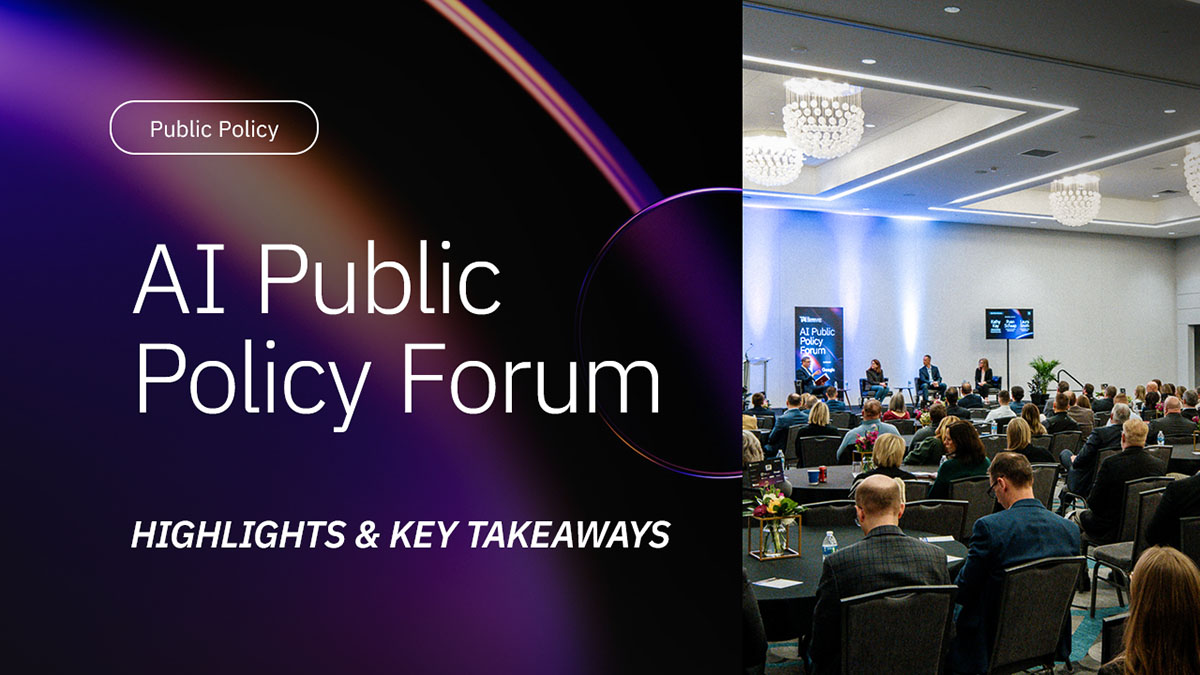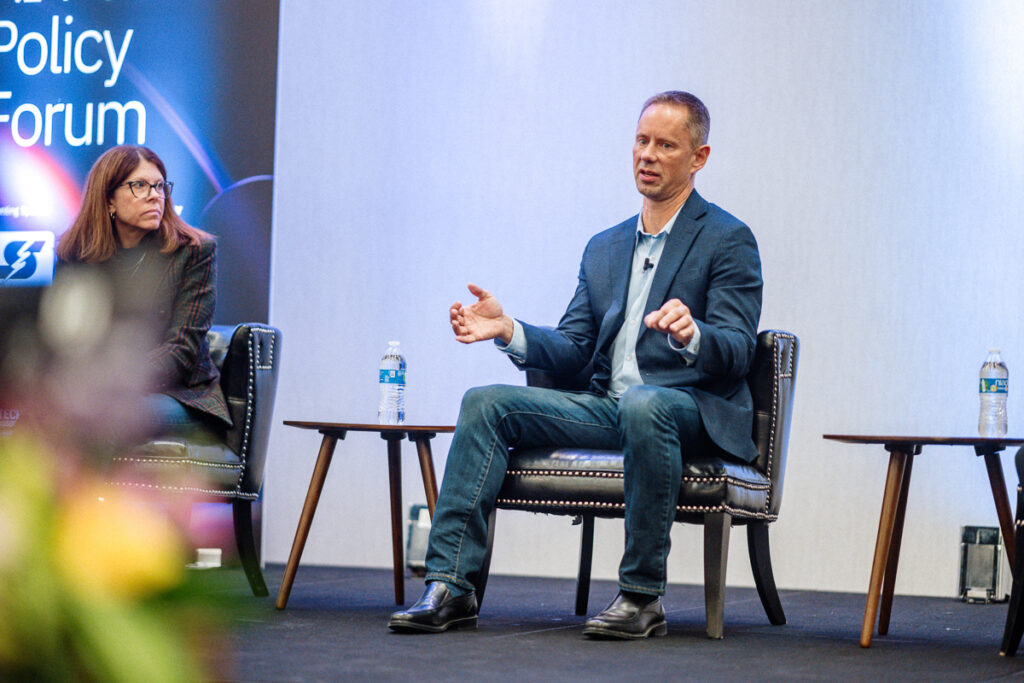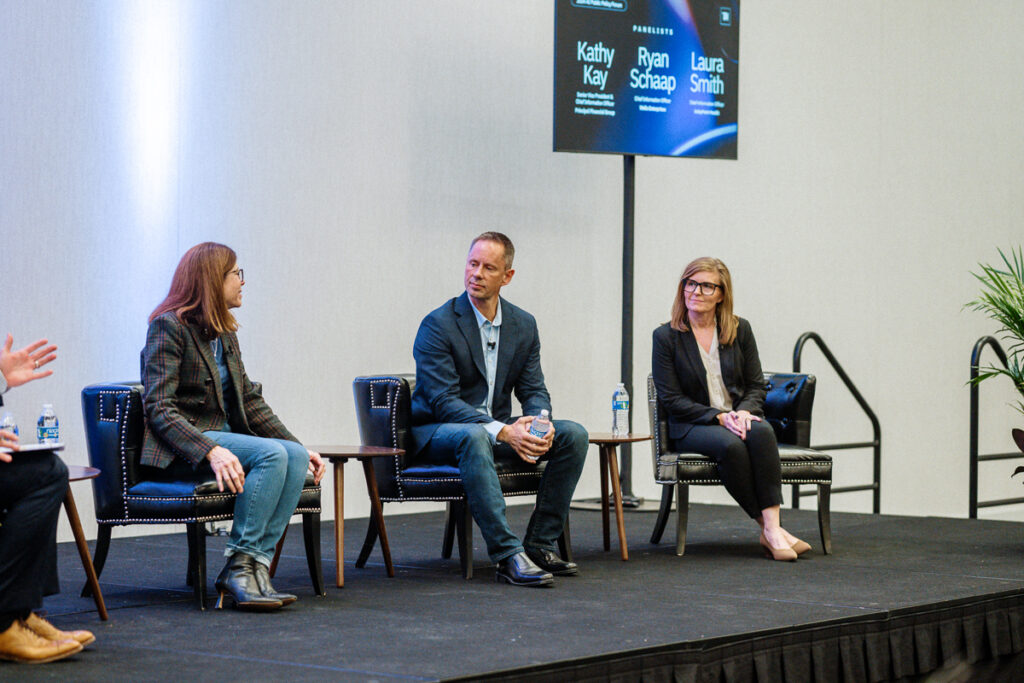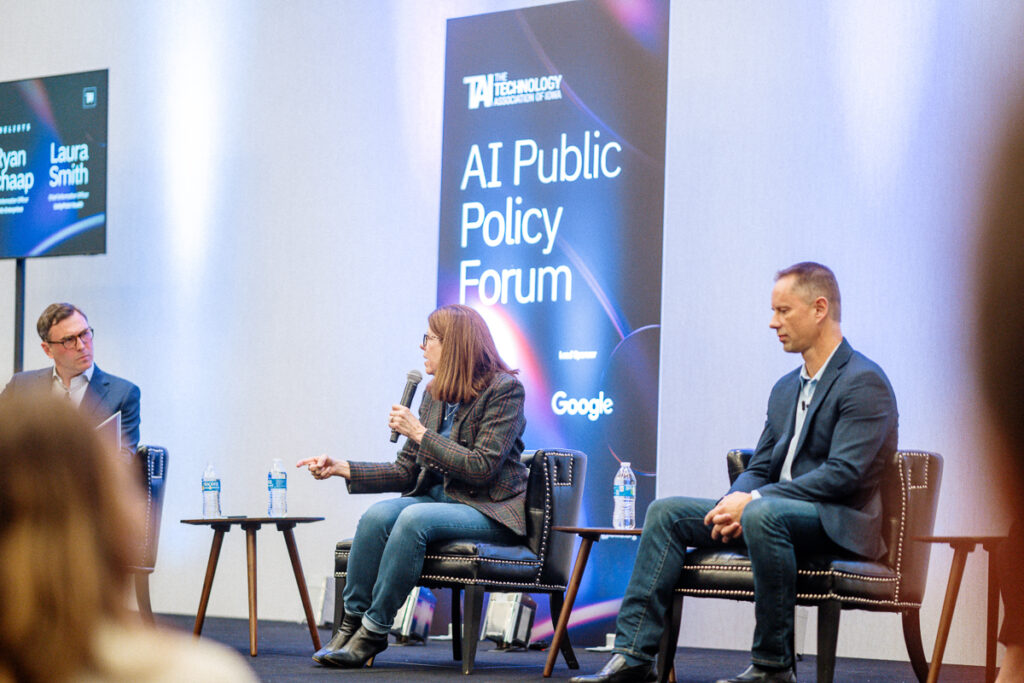
2024 AI Public Policy Forum Highlights
One thing is for sure: Artificial intelligence (AI) is here to stay.
But there are still a lot of questions surrounding the technology and its impact on society.
As an opportunity to openly discuss ideas on AI, the Technology Association of Iowa hosted a dynamic forum on the evening of Wednesday, Jan. 24, dedicated to topics related to shaping the future of AI policy in Iowa. The event gave tech executives, lawmakers, community leaders, and Iowa’s business community a chance to collaborate, gain insights into the latest AI developments, and discuss strategies to navigate its challenges and opportunities.
The ultimate goal of the forum was to educate and inform lawmakers and the broader business community through a panel and discussion focused on AI, real-world applications, and the impact on Iowa’s workforce and innovation landscape.
The panel included Kathy Kay, executive vice president and chief information officer at Principal Financial Group; Ryan Schaap, chief information officer at Wells Enterprises; and Laura Smith, chief information officer at UnityPoint Health. All three leaders shared insights regarding AI’s impact on various industries, Iowa’s workforce, and the public’s perception of AI.

AI Across Industries
In 2023, when ChatGPT took AI to the mainstream, Laura Smith remembers having an “a-ha” moment when she knew it would be a paradigm-shifting technology. During her first interaction with ChatGPT, Smith thought, “This is going to revolutionize every industry, and healthcare is no different.”
Smith believes AI has the potential to help increase health equity, reduce staff burnout and lower the overall cost of healthcare services.
Ryan Schaap of Wells Enterprises — the largest privately held, family-owned ice cream and frozen treat manufacturer in the United States (and maker of Blue Bunny ice cream) — shared that in the manufacturing space, AI has been around a long time yet evolving slowly. In the last few years, he’s seen significant improvements in areas like vision AI (aka computer vision), which enables computers and systems to derive meaningful information from digital images. Schaap feels the manufacturing industry has a lot of opportunities to tie its legacy systems into the increasing prevalence of AI tools.
Over in the financial sector, Kathy Kay believes the most impactful tool currently is generative AI. This term refers to algorithms like ChatGPT that can be used to create new content, including audio, code, text and videos.
“Everybody in financial services is doing a lot of testing and learning in generative AI,” Kay said. “Think of things like copilots — how can we help our employees do their work more effectively and faster, and how can I create capacity? We’re leveraging it, for example, in software development to help aid in summarizing large amounts of data.”
For now, since generative AI is so new, Kay said her organization is staying away from using it in direct-to-consumer scenarios.
“We’re being very cautious there,” she said. “We’ll have a human in the middle and think about it more as copilots for our employees in various areas.”

Examples of use cases with AI
Kay shared that if an organization is testing out generative AI, it should “stay close to compliance and safety officers.”
For example, before Principal Financial Group can put out content, its compliance team has to review it to ensure it complies with regulations.
“We’re able to run it through [an AI] model now and make suggestions before the compliance people review it,” Kay said. “It speeds up their ability to go through text and content much faster than they have in the past.”
At Wells Enterprises, Schaap said they’re using AI for procurement and translation, wherein they can feed a document to a system that then translates it into Spanish, prioritizing the specific language used at Wells for manufacturing. This use of this translation AI has been highly successful in bridging language barriers in their workforce across their production facilities.
Yet, while AI can be a helpful tool, Schaap shared that his organization also embraces a “human in the middle” mindset.
We don’t get it to the point where we’re just letting the AI machines do all the work. There’s human intervention.
- Ryan Schaap
Within the healthcare sector, Smith feels they’re only beginning to scratch the surface of all AI can do. One use case for the technology on the clinical side is with medical imaging, helping technicians make better decisions. They also used AI for predictive modeling during the height of COVID-19, which helped professionals see where surges were occurring in the state, ultimately helping the company adjust staffing levels.
Smith added that UnityPoint uses AI for functions like supply chain and finance.
“Those are really great lower-risk areas to leverage AI to greater degrees,” she said.

AI’s impact on workforce
The panelists agreed that AI won’t take over the need for humans in the workforce.
“I don’t think that’s true,” Schaap said. “I think people who don’t know how to use AI well will be replaced by people who do know how to and can use it to complement their jobs.”
Schaap feels a person who will excel is one with strong technology skills and an aptitude and curiosity for AI.
There’s a real opportunity to build a workforce of AI professionals within the state of Iowa.
“I think some of the best partner companies I have working at Wells Enterprises are Iowa startups that have come over the last 20, 30 years in software development, cybersecurity or similar areas,” Schaap said. “If we have incentives in Iowa to kickstart more of the startups in the AI space, that could be a big advantage to our state.”
To fill the talent gap, Smith added that companies can look at upscaling within their workforce, too.
I do agree jobs will change. What is important is to put talent to work in new ways.
- Laura Smith

AI & public trust
Smith shared her thought that just because we can use AI, should we always?
“I think it’s OK to be a little skeptical,” she said. “I think we’re going to be wrestling with that in many different ways, especially in a sensitive area like healthcare.”
It’s important to create governance and guardrails around the responsible use of AI, as well as have open discussions about it.
The more conversations we can have about AI within our organizations, industry and public forums, the better, just to demystify it. Then, we can all have a common language.
- Laura Smith
Ultimately, to build public trust around AI, transparency is key. Be clear on how models are built and what data was used. The public should also be aware of privacy risks at play.
Not only is it about privacy, but it’s also became a data literacy educational opportunity.
- Kathy Kay

Final Takeaways
At the end of the discussion, the panelists shared their final thoughts on AI:

Kathy Kay
“You hear so much about how bad it could be, and there’s a lot of stories about where it’s gone wrong. Know that as companies and CIOs, we take that all seriously. We’re very focused on wanting to use the technology and innovate with it, but we’re also very conscious of implications of bias and using it ethically.”

Laura Smith
“It’s important to embrace the technology and be open-minded, but also a little bit skeptical. Being skeptical and curious is really a wonderful thing. Conversations like this are important to continue.”

Ryan Schaap
“It’s about balance. There’s the concept of protection and privacy and making sure we’re keeping everything safe, then there’s how do we incent and advance businesses in Iowa and Iowa as a technology state. There’s going to be middle ground there, and I think we need to keep both perspectives.”

